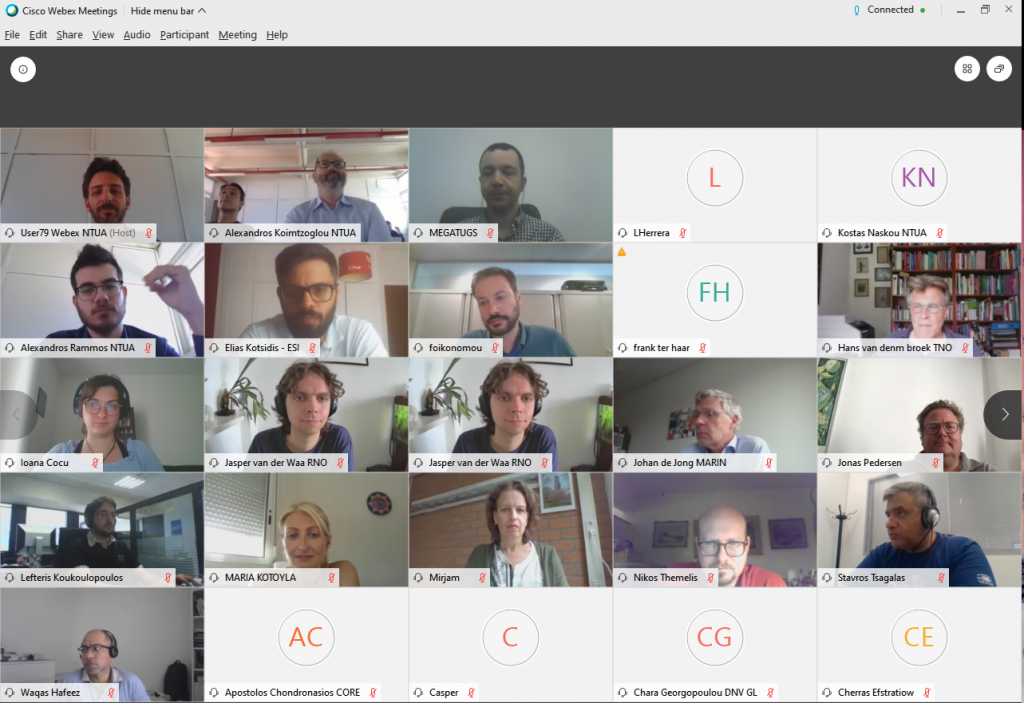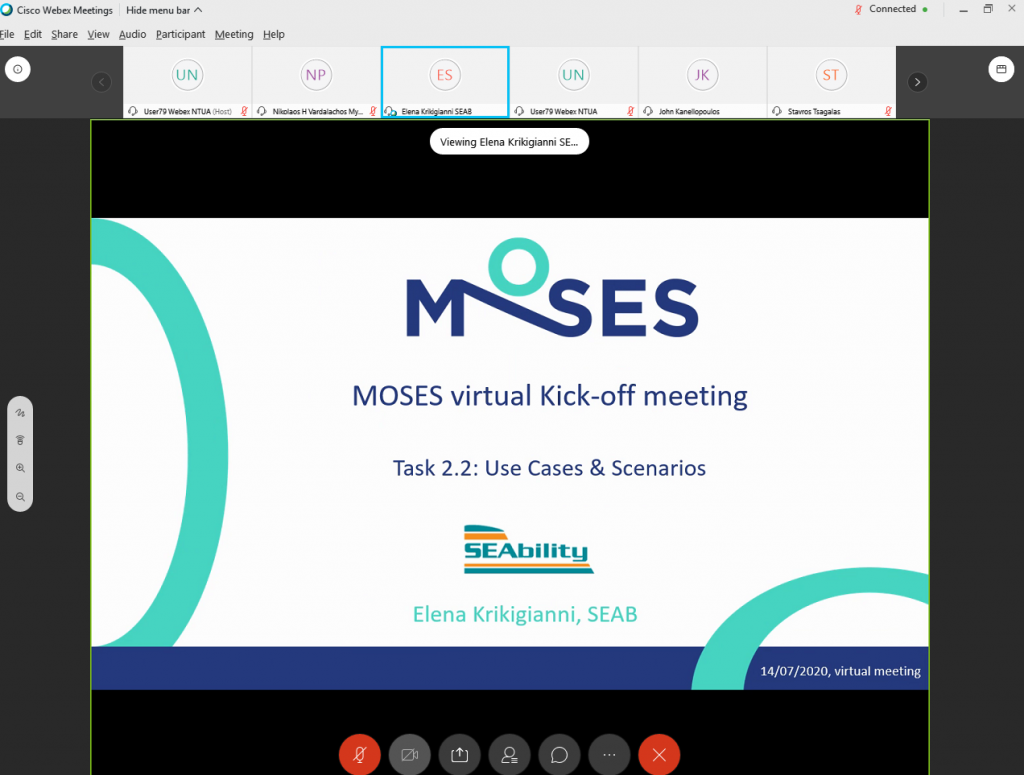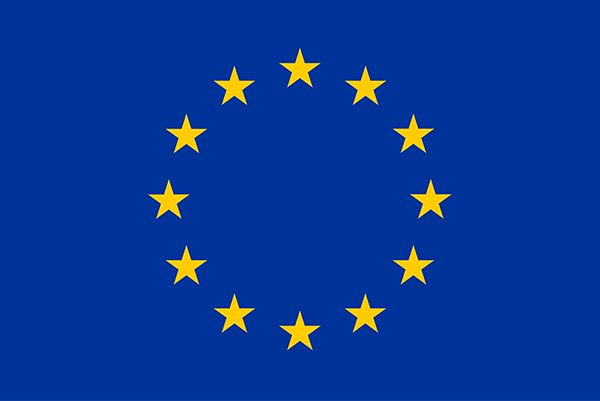Press release: SEABility participates in MOSES H2020 project
MOSES project: Automated Vessels and Supply Chain Optimisation for Sustainable Short SEa Shippping
SEABility is delighted to announce its participation in the eagerly awaited MOSES project, an EU-funded research and innovation action focused on maritime transport that addressed the call MG-2-6-2019, Sub-topic 2, of the Horizon 2020 Programme. The project brings together a consortium of 17 partners from 7 EU countries, united in their vision to improve the modal split for Short Sea Shipping (SSS) in the European container supply chain. In this project, the MOSES team sees the opportunity to achieve beyond state-of-the-art, applied know-how and technological developments that, otherwise, would be unfeasible and extremely costly to develop and pursue on their own.
MOSES is coordinated by the National Technical University of Athens (NTUA) and aims to significantly enhance the SSS component of the European container supply chain by addressing the vulnerabilities and strains that relate to the operation of large containerships. MOSES will follow a two-fold strategy, which consists of reducing the total time to berth for TEN-T Hub Ports and stimulating the use of SSS feeder services to small ports (hub and spoke traffic) that have limited or no infrastructure.
The Kick-off meeting marked the starting point for the constructive and successful collaboration between all partners and took place virtually on 14 to 15 of July 2020.


During the first day of the meeting, the coordinator provided the overall picture of MOSES project, while a detailed presentation was given per work package, followed by a discussion regarding the next steps to follow henceforward, as well as the cascading effects that may arise due to the COVID-19 outbreak. SEABility, as Leader of the Work Package 8 “Exploitation, Dissemination, Stakeholder engagement & Policy Recommendations” presented in depth the key objectives, the initial starting activities and the provisional time plan for the upcoming steps. Part of the day was also devoted to the presentation made by the MOSES Project Officer.
Τhe second day was devoted to a WP2 Workshop, entitled: ‘From User needs and requirements to specifications’, where the respective objectives per Task along with the future work plan were thoroughly discussed. SEABility, as task 2.2 leader, provided a detailed presentation about MOSES use cases and scenarios, referring also to the interaction with the other WP2 tasks.
More information about MOSES activities can be found here.
 This project has received funding from the European Union’s Horizon 2020 research and innovation programme under Grant Agreement No 861678. Content reflects only the authors’ view and European Commission is not responsible for any use that may be made of the information it contains.
This project has received funding from the European Union’s Horizon 2020 research and innovation programme under Grant Agreement No 861678. Content reflects only the authors’ view and European Commission is not responsible for any use that may be made of the information it contains.
